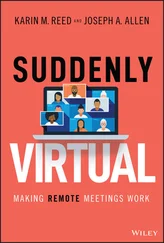What were the Jews guilty of? The lecture started off with that question every time, and the answer came quickly: obstinacy. Their refusal to change, their clinging to the worthless old faith of their fathers. The new Jews were no better: wealth was their faith. In those years I hated the Jews, though most of the people handling me were Jews, as were their commanders.
Quite a few ideas were raised at those secret nightly meetings: to dismantle all the ghettos and transfer the Jews to agricultural colonies; to imprison the rabbis, the religious judges, the kashrut supervisors, and the heads of yeshivas in reeducation camps; to forbid studying in Jewish religious schools and in synagogue study halls. The fury of the commissars was directed especially at ritual baths. They were regarded as a symbol of ignorance and evil.
I left home at seventeen, when I finished school. Neither my mother’s pleas nor my father’s silences could keep me with them. The idea that from then on I would sleep in abandoned houses, live by stealing, and help my weak friends was more powerful than any feelings of guilt.
Of course the reality was different from what I had imagined. Abandoned houses weren’t ideal places to live. People fought over every bit of floor, over a rotten mattress, not to mention a slice of bread or a hunk of cheese. The commissars tried in vain to impose order on the mixed multitude. The police, who used to raid the buildings at night, did not inspire within us a desire for mutual assistance. Whoever was able to flee ran away, and the weak ones would be caught and put in jail. It was a violent, exhausting life. I would often fall asleep under a bridge or in the hallway of an apartment building, just to avoid the company of my comrades.
I never returned home. My mother’s pleas reached me from time to time: “Come home, son, my life is nothing without you.” They arrived in the form of short letters or in chance meetings with neighbors. I ignored them. Harden yourself! I would repeat during those times. I had to harden myself in preparation for the great struggles. Humanity came before the individual. The revolution came before everything.
I eliminated parts of myself. I regarded anything that didn’t contribute to the revolution as a luxury. I stopped reading the beloved poems of Rilke and the prose of Kleist. I didn’t permit myself to enjoy a melodious sentence or a special word, not to mention a phrase that contained mysteries of the soul.
I even denied myself strolls on the riverbank and visits to cafés. I took my meals in the soup kitchens of churches and synagogues.
I trained myself to be an ordinary soldier, one who receives orders and carries them out without thinking about them. Everything that I had learned in high school — doubts, hypotheses, comparisons, ambiguities — all that was like a sin for which I had to atone through exhausting labor.
THE COMMISSARS QUICKLY DISCOVERED ERNST’S ABILITIES: his mastery of languages, his articulate writing, and his ability to compose a series of tracts. Literature was his great love, but he suppressed his feelings and gave them no expression. The world would not be founded on poetry but on eliminating injustice, he repeated to himself. Instead of poetry or literature, Ernst created posters, open letters, and pamphlets. He learned to turn a personal feeling into a slogan that caught the eye and captivated the ear. Like all his comrades, Ernst divided the world into black and white, bad and good. In the good world dwelt communism, and in the bad world, everything that existed before it. The division was so sharp that no one around him doubted it. From time to time Ernst would feel a twinge in his heart at the sight of a word he had corrupted, but the belief that he was doing what was necessary was stronger than any other feeling.
Hour after hour Ernst would sit in his cellar, writing and rewriting. On the agenda were not only social and political matters but also culture, literature, religion, the plastic arts, and music. He called upon all his abilities and, even more, on his youthful energy, to produce splendid pamphlets. The publications of the other political parties seemed thin in content to him, faltering, and lacking vision. His texts shone with borrowings from literature and philosophy. They stood out in their simplicity and honesty, and they aroused the heart.
People were enthusiastic about his writing and quoted it; his work became well known in Czernowitz. Of course no one knew who the author was. There were rumors that the polished pamphlets came straight from Moscow. The Communists of the city weren’t examples of good behavior, but Ernst’s posters and pamphlets were called “a model of good writing.”
Ernst was shunted from city to city like a workhorse. Everywhere he went, a cellar, an old desk, coarse paper, a pen, and ink awaited him. He knew what to elevate and what to cast down. Words flowed from his pen that were full of meaning and laden with irony, words that fired the imagination.
At restricted Party meetings, which were called “kitchen nights,” future actions and punishments were determined, and Ernst saw the regional leaders close up. They were mainly of his tribe, and they spoke better Ukrainian and Russian than the Ukrainians. They were short and nearsighted, and their eyes were filled with cunning, suspicion, and ambition. Their practical ideas were written in little notebooks that they would whip out of their pockets. They pronounced Jewish names the way the Ukrainians did, which immediately displayed the barrier they had erected between themselves and their brethren. Another thing was conspicuous at those kitchen nights: the little maps, the handiwork of anonymous women volunteers, that indicated the religious institutions, factories, and workshops that were to be burned down, or whose owners were to be attacked.
After two years without seeing his parents, Ernst decided to visit them. He didn’t do it willingly. Harsh dreams tormented his sleep. At first he tried to ignore them, but they returned night after night. His parents appeared in the dreams the way he remembered them, with no evident change. Their faces had grown thinner, and, as always, they expressed disappointment with themselves. He interpreted that disappointment as a demand for him to return home.
Ernst made his way in the dark from his cellar to the house. He knew that his parents locked up the grocery store at seven and returned home. At eight his father would stretch out on the sofa, immerse himself in the newspaper, and wait for his mother to call, “Dinner is ready.”
When Ernst opened the door, nothing new was revealed. His mother was in the middle of preparing a meal; his father lay on the sofa. Ernst’s sudden appearance riveted them in their places. In their great astonishment, they could say nothing.
“Where have you been?” At last his mother got a few words out of her mouth.
“Not far from here,” he answered in a voice not his own.
“Do you have an apartment?”
“Yes.”
Ernst wasn’t anxious to provide details, and his mother’s mouth was still. His father didn’t utter a syllable. His long face grew longer. His eyes were filled with astonishment. Seeing his father’s expression, Ernst said, in a self-satisfied way, “I’m working on important projects.” His father didn’t react to that, either. Ernst felt that the word “projects” was laden with empty pretension.
“We’re about to close the store.” His mother recovered herself and told him about their situation.
“Why?”
“No more customers.”
“How will you make a living?”
“God knows.”
Soon everything will change , he was about to tell her, but instead he said, “You have to think about what to do.”
Читать дальше












